The Dogue de Bordeaux, also known as the French Mastiff, is a powerful and muscular breed with a noble and dignified bearing. Despite their impressive size and strength, Dogues de Bordeaux are known for their gentle and affectionate nature, earning them the nickname gentle giants. In this article, we will delve into the history, appearance, temperament, care, and training of this magnificent breed.
History of the Dogue de Bordeaux
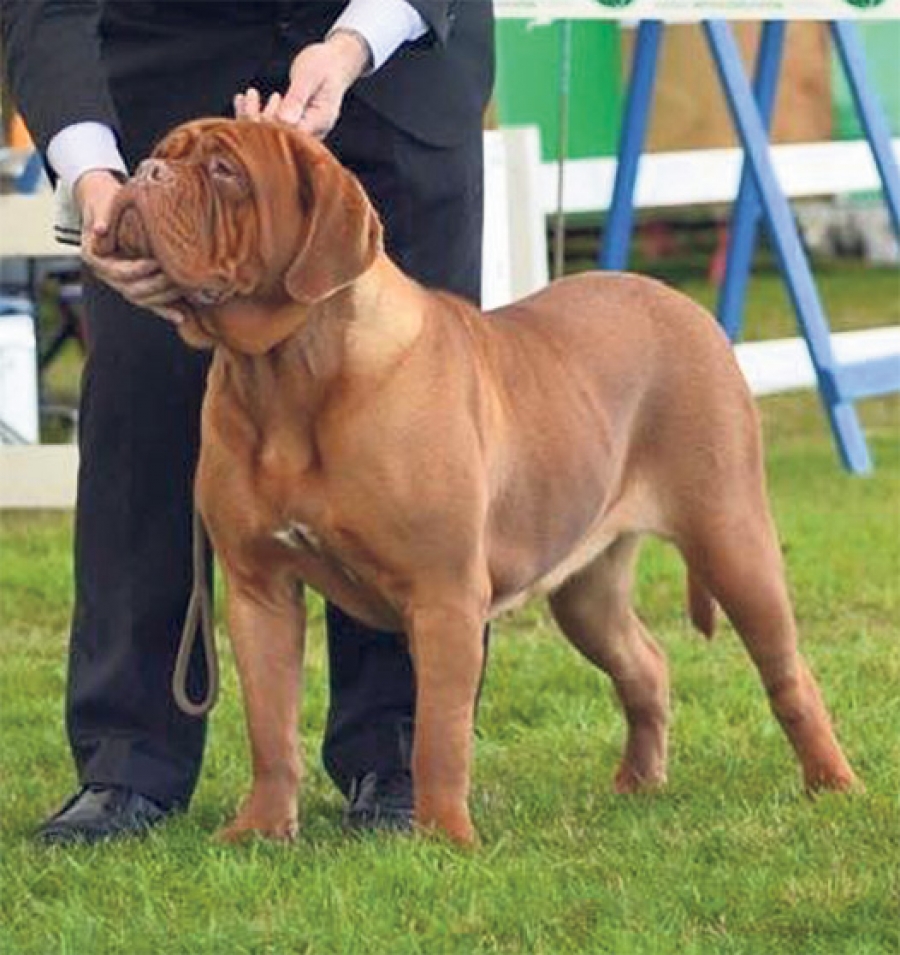
The Dogue de Bordeaux has a long and rich history dating back to ancient times. They are believed to be descended from the Alaunt, a large dog used by the Gauls for hunting and war. The breed was later developed in the Bordeaux region of France, where they were used to guard vineyards and chateaux.
Development of the Breed
The exact origins of the Dogue de Bordeaux are unclear, but it is believed that they were developed through crossbreeding between the Alaunt and local mastiff-type dogs. These dogs were then further refined by crossing with English Bulldogs and Spanish Alano dogs. This resulted in a powerful and versatile breed that was used for a variety of tasks such as guarding, hunting, and even fighting.
Recognition as a Distinct Breed
Dogues de Bordeaux were first recognized as a distinct breed by the French Kennel Club in 1898. However, it wasn’t until 1926 that the first breed standard was established. This standard was revised in 1948 and has remained largely unchanged since then. The breed was officially recognized by the American Kennel Club in 2008.
Appearance of the Dogue de Bordeaux
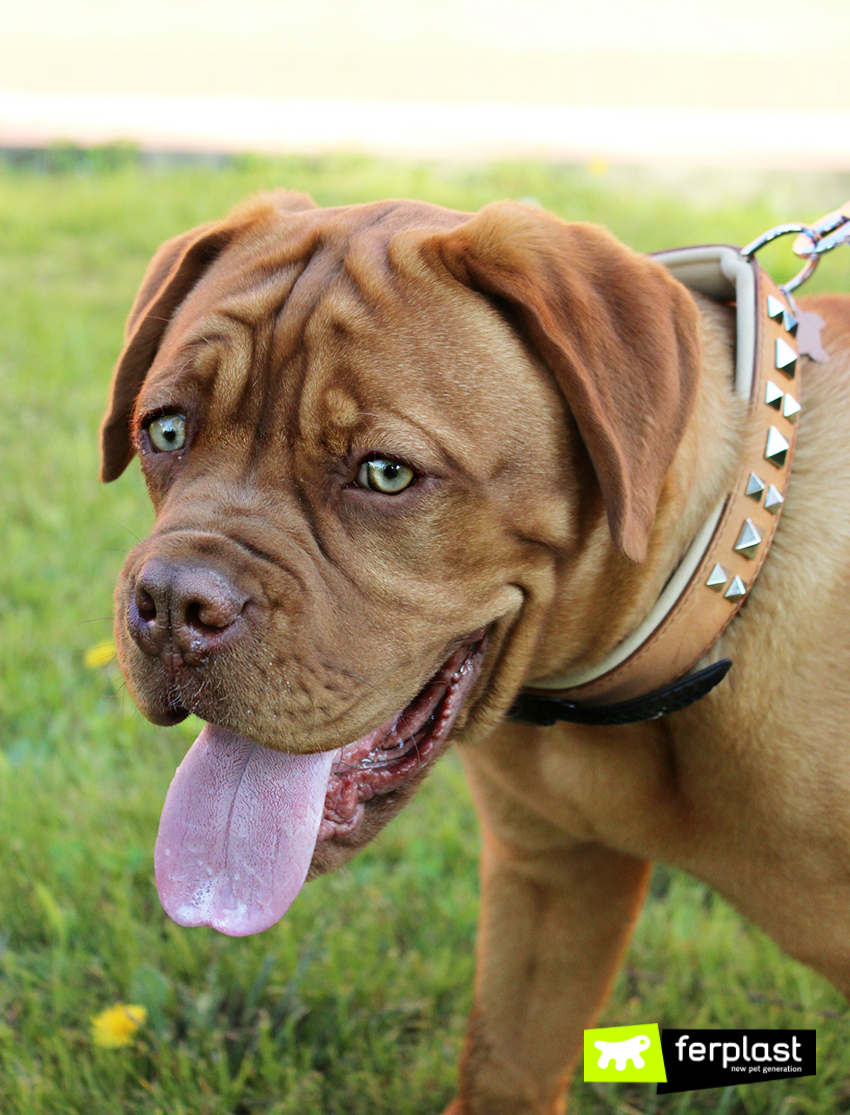
Dogues de Bordeaux are large and powerful dogs, with males typically weighing between 120 and 150 pounds and standing 23 to 27 inches tall at the shoulder. Females are slightly smaller, weighing between 90 and 120 pounds and standing 21 to 25 inches tall at the shoulder. They have a massive head with a broad skull and powerful jaws. Their ears are naturally floppy, but some owners choose to crop them for aesthetic purposes.
Coat and Colors
The breed has a short, smooth coat that can be any shade of brindle, fawn, or red. Some dogs may also have white markings on their chest and toes. The coat is low maintenance and only requires occasional brushing to remove loose hair. However, they do shed moderately year-round, so regular grooming is recommended.
Unique Features
One of the most distinctive features of the Dogue de Bordeaux is their wrinkled face, which gives them a serious and imposing appearance. They also have a thick, muscular neck and a deep chest. Their tail is usually docked to a short length, but this practice is becoming less common as it is considered unnecessary and even cruel by many dog lovers.
Temperament of the Dogue de Bordeaux
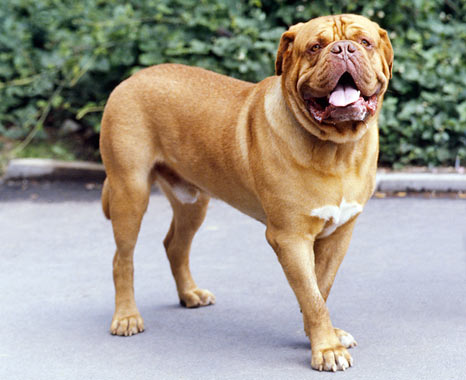
Despite their intimidating size and appearance, Dogues de Bordeaux are known for their gentle and affectionate nature. They are loyal and devoted to their families and make excellent companions. However, due to their protective instincts, they may be wary of strangers and other animals. Early socialization and training are crucial to ensure that they are well-adjusted and friendly towards all.
Family Dogs
Dogues de Bordeaux make great family dogs and are especially good with children. They are patient and tolerant, making them ideal playmates for kids. However, due to their large size, they may accidentally knock over small children, so supervision is necessary when they are around young ones.
Guarding Instincts
As a breed that was originally developed for guarding, Dogues de Bordeaux have a strong protective instinct. They will do anything to protect their family and home, making them excellent guard dogs. However, this also means that they may be suspicious of strangers and may need proper training and socialization to prevent any aggressive behavior.
Training and Exercise Needs
Dogues de Bordeaux are intelligent and eager to please, making them relatively easy to train. However, they can also be stubborn and independent at times, so consistent and patient training is necessary. They respond well to positive reinforcement techniques such as praise, treats, and playtime.
Despite their large size, Dogues de Bordeaux do not require excessive exercise. A daily walk or play session in the yard is enough to keep them physically and mentally stimulated. They also enjoy activities like swimming and hiking, but care should be taken not to overexert them in hot weather due to their brachycephalic (short-nosed) features.
Care and Health of the Dogue de Bordeaux
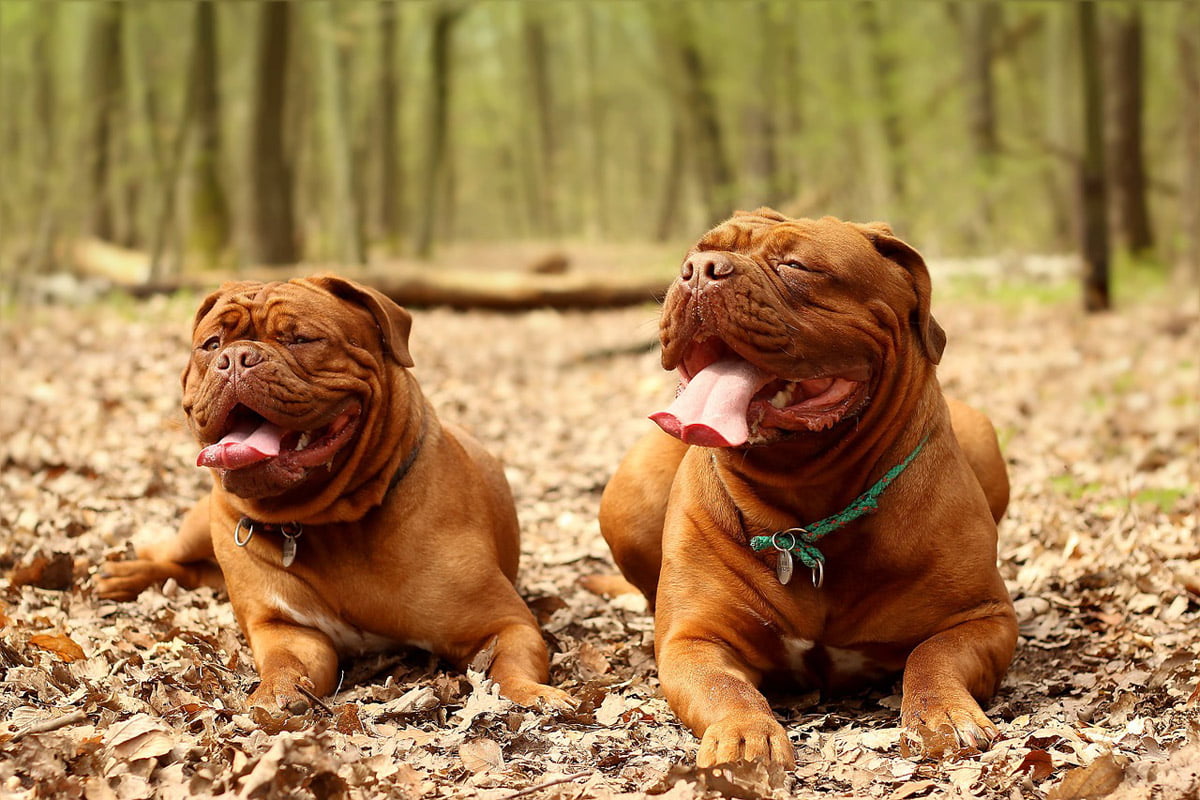
The average lifespan of a Dogue de Bordeaux is between 8 to 10 years. Like all breeds, they are prone to certain health issues, some of which are genetic and others that may arise due to their size and structure. It is important to be aware of these potential health concerns and take preventive measures to ensure your dog’s well-being.
Common Health Issues
Some of the most common health issues seen in Dogues de Bordeaux include hip and elbow dysplasia, bloat, and eye problems such as entropion and ectropion. They are also prone to allergies and skin infections, which can be managed with proper grooming and diet. Responsible breeders perform health checks on their breeding dogs to reduce the risk of passing on genetic health issues to their offspring.
Grooming Needs
As mentioned earlier, the Dogue de Bordeaux has a short and low-maintenance coat. However, they do shed moderately year-round, so regular brushing with a soft-bristled brush is necessary to remove loose hair and keep their coat shiny and healthy. They only need to be bathed when necessary, as frequent bathing can strip their skin of its natural oils.
Diet and Nutrition
Due to their large size, Dogues de Bordeaux have a hearty appetite and require a high-quality diet that is appropriate for their age and activity level. It is important to monitor their food intake and not overfeed them, as obesity can lead to various health issues. Consult with your veterinarian to determine the best diet plan for your dog.
Training and Socialization of the Dogue de Bordeaux
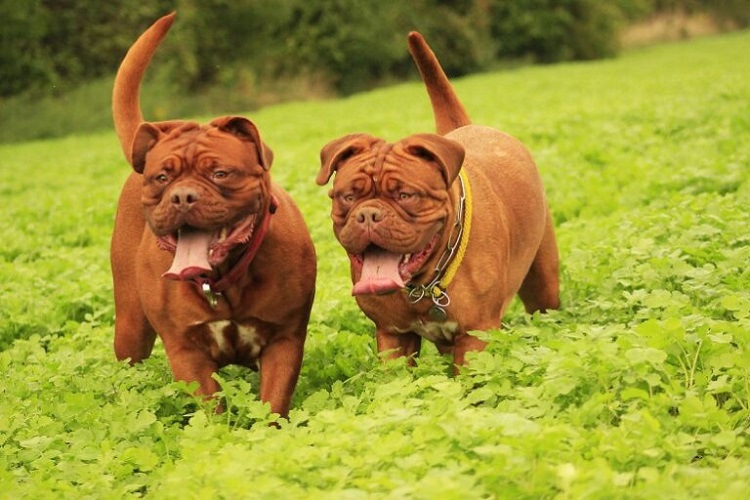
Training and socialization are crucial for all dog breeds, but especially for powerful and potentially dominant breeds like the Dogue de Bordeaux. Early training and socialization will help them become well-adjusted and well-behaved members of society.
Obedience Training
Obedience training is essential for all dogs, and it is especially important for a breed as strong and powerful as the Dogue de Bordeaux. Basic commands such as sit, stay, come, and heel should be taught from an early age. This will not only make them easier to handle but also ensure their safety in potentially dangerous situations.
Socialization with People and Other Animals
Proper socialization is key to preventing any aggressive behavior in Dogues de Bordeaux. They should be exposed to different people, animals, and environments from a young age to help them become comfortable and confident in various situations. This will also help prevent any fear or aggression towards strangers or other animals.
Exercise and Mental Stimulation
In addition to physical exercise, Dogues de Bordeaux also require mental stimulation to keep them happy and well-behaved. Puzzle toys, training sessions, and interactive games are great ways to keep their minds engaged and prevent boredom, which can lead to destructive behavior.
Famous Dogues de Bordeaux
The Dogue de Bordeaux has gained popularity in recent years, thanks to its appearance in movies and TV shows. Some famous Dogues de Bordeaux include:
- Beasley, the dog from the movie “Turner Hooch”
- Duke, the dog from the movie “The Secret Life of Pets”
- Stella, the dog from the TV show “Modern Family”
Video
Conclusion
In conclusion, the Dogue de Bordeaux is a magnificent breed with a rich history and a gentle nature. They make excellent family dogs and loyal companions, but they do require proper care, training, and socialization to ensure their well-being and happiness. If you are considering adding a Dogue de Bordeaux to your family, be prepared for a lifetime of love, loyalty, and slobbery kisses from this gentle giant.